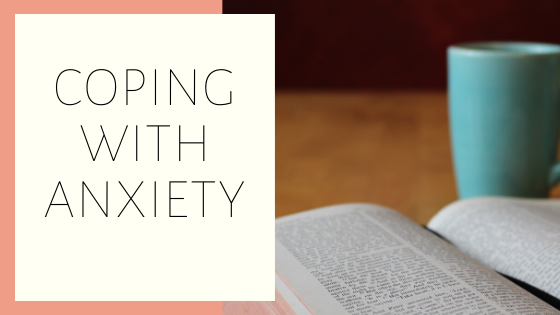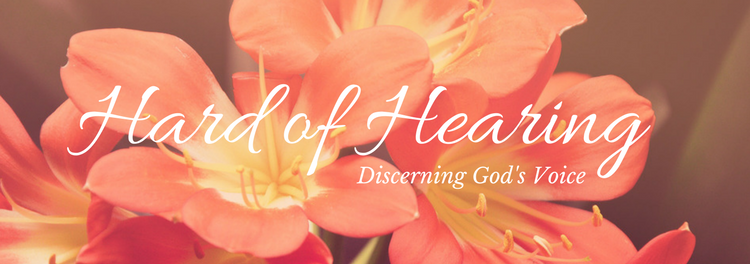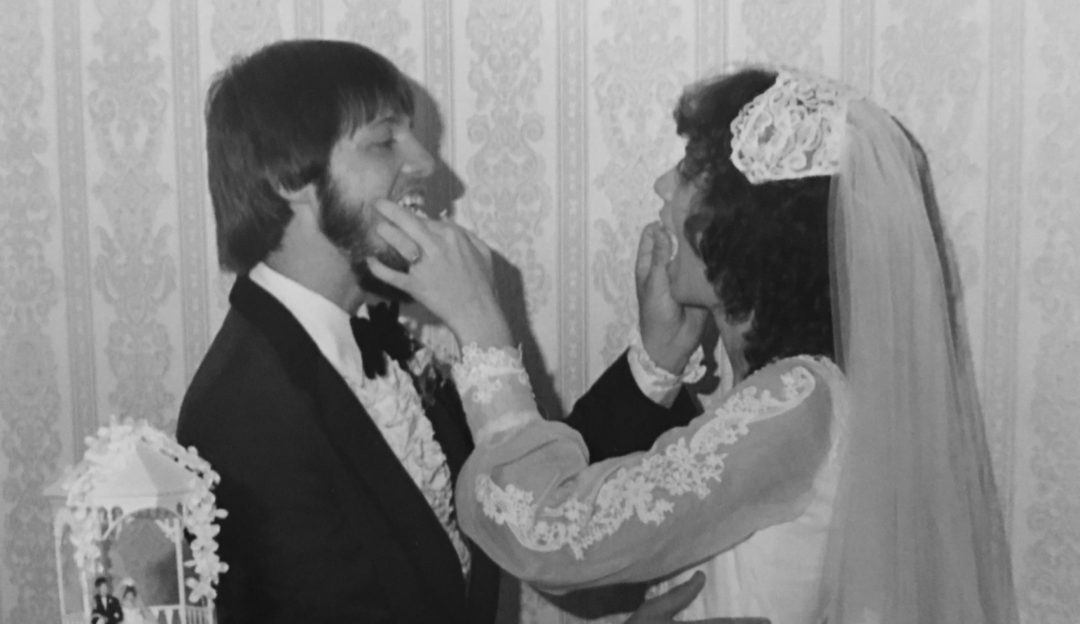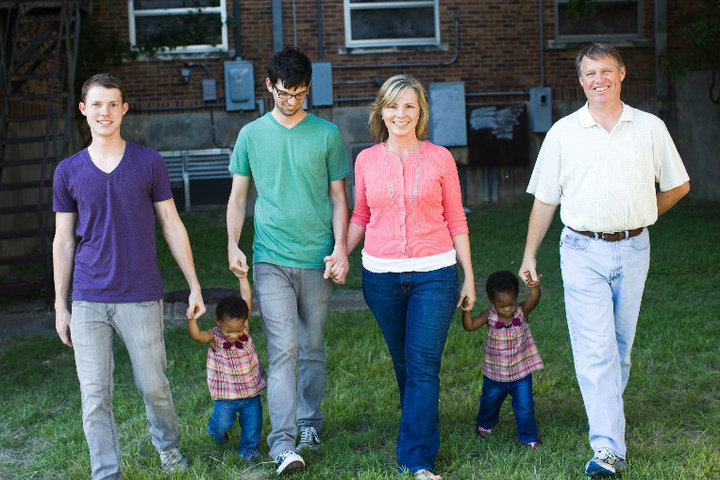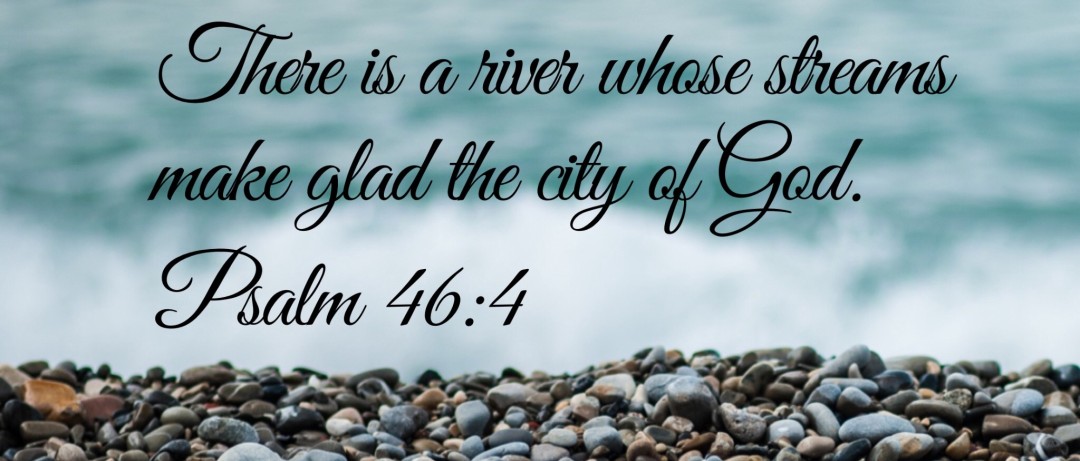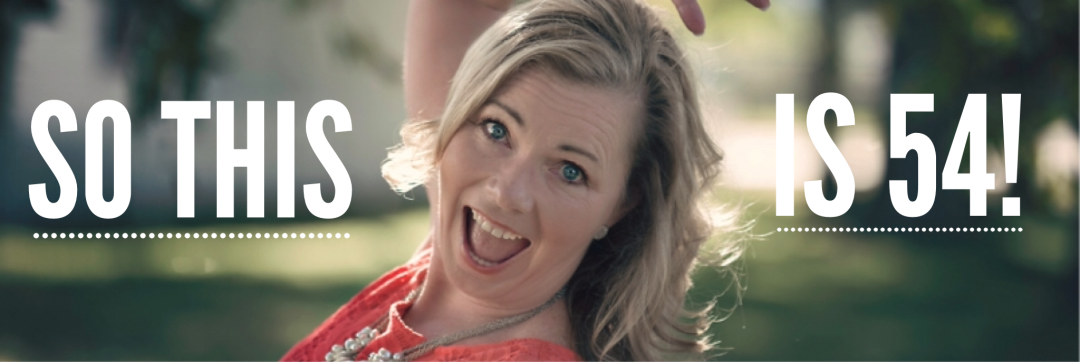From the moment our daughters began to notice that our skin color was different than theirs, we have talked about skin color much as we would about eye color or any other physical differences people have. Our conversations have always been about the beauty of our diversity and the incredible way God has knit our family together. But I am not so naïve as to think I could shelter our daughters from the reality of the world they live in, nor the complexities and atrocities of race relations that have been a part of our nation’s history and are part of our nation today.
I remember one day a few years back, Catherine brought home a picture book called, “The ABC’s of American History.” In the book, “M” was for MLK and “S” was for slavery. But because she was only three, I saw no need to explain those words to her and instead just glossed right over them.
Recently, I watched an episode of Parenthood entitled, “The Talk,” where Crosby and Jasmine Braverman, an interracial couple, talked to their bi-racial child about racism. As I watched, I knew that someday, I, too, would have to have that conversation with my daughters. That day was today.
The girls watched a video about Martin Luther King, Jr. and why we have a holiday to honor him. It was a frightening video, especially to Nikki. She did not understand why policemen were spraying water on people, or why grown-ups were yelling at little children at school, or why dogs were biting people. She did not understand why someone would shoot Martin Luther King, Jr., and she wanted answers to all of her questions.
I started the conversation by talking about the difference in our skin color, much like we have always talked about it. As they ate their breakfast, I did my best to explain. “Sometimes people dislike other people for silly reasons, including just because their skin is a different color.” At this point, Catherine reached over and put her arm next to mine, comparing our skin color. I paused for a moment, unsure I could go on. “You know how my skin is really light and even though it’s more pink, people say I am white?” Both girls nodded. “And you know how your skin is darker than mine? Well some people call that black skin.” Catherine looked at me confused and said, “I’m not really black. I’m Mexican colored, like Miss Laura (our neighbor).” I have to confess, it made me laugh a little.
I continued.
“A long, long time ago, there were rules that made sure people with white skin like mine and dark skin like yours had to do completely different things. For example, white children went to different schools than black children. And black people had to drink from different water fountains than white people.” Once again, Catherine reached over and put her arm next to mine. Then she slipped her hand into mine without uttering a word.
I was so choked up I could hardly speak. I could tell she was just trying to comprehend what in the world would make people hate someone just because their skin was a different color. And I’m not certain, but I think she needed some kind of reassurance from me, and that’s why she put her hand in mine.
I smiled at her, my eyes filling with tears (I couldn’t help it), and said, “Believe it or not, there were even rules about where people could sit on a bus!” (Keep in mind, I was trying to keep this way on their level and not too far above their heads.) Catherine said, “If I was on a bus and someone told me to move to the back, I would just tell them, ‘I’m not going anywhere!’” That led into a discussion about Rosa Parks and how she had done that very same thing. Catherine seemed very pleased about Rosa sticking up for others. I said, “It’s important to speak up when something isn’t right, isn’t it?” Nikki said, “Yeah. That’s not the same as tattling though, right Mom?” I assured her it was not the same.
And then we started talking about Dr. King.
I said, “Martin Luther King, Jr. was a pastor, like Pastor Jeff at our church. He and a lot of other people, people with black skin and white skin, started saying that having rules that separated people just because they had different skin color was wrong and really stupid.” They both sucked in their breath at my use of the word stupid.
I said, “Remember how I told you some people didn’t want the rules to change, and some of those people were very hateful about wanting to keep the rules the same? Well sometimes those people were very mean.” Catherine said, “The white people were mean to the black people?” I really did not want to answer that question, but I looked her in the eyes and said, “Yes.”
I continued. “But Dr. King said there was a better way. And he had a big special talk about a dream he had.”
Nikki said, “Was it a bad dream? Was he afraid of those dogs biting him too?”
I smiled at her and said, “No baby. It wasn’t the kind of dream you have when you are asleep, but more the kind of dream that is something you hope will someday come true. And because his speech was so great, and his dream was so big, other people started hoping for the same thing.”
Nikki said, “But Mama, why those people with the water hoses was so mad and why them dogs bited people? (She had a nightmare last night about what she’d seen in the video at school.) “Well baby,” I said, “People started marching to show they wanted things to change. They didn’t think it was fair for people to be separated or treated badly just because their skin color was different. And, during the marches, people got really mad at each other.”
Catherine said, “At a march? Like a parade?”
I laughed a little at her innocence and said, “No, a march is when you walk as a group to show that you want something to change for the better.”
From there we went on to talk about the civil rights marches and the fact that some people just didn’t want things to change, and that eventually, a very hate-filled person shot Dr. King because he didn’t want him to talk about his dream any more.
Nikki said, “I don’t understand why someone would shoot him though.” And Catherine added, “I bet that hurt. I’m sorry that happened to him.” I said, “Me too, baby. Me too.”
We ended the conversation by talking about how Dr. King’s dream did come true in many ways. I closed by saying, “He died trying to make our world a better place. We honor him by having a special day to remember his dream.”
I asked the girls if they had any questions. They were both silent. I’m sure they will have more questions in time, but for this morning, that was enough. I hate that their little hearts and minds had to be opened to the existence of such hate in this world. But I know it was inevitable.
All that to say, I have no idea if I did a good job explaining such a very complex subject. I know we will have many more of these conversations in their lifetime. I’m grateful God made us a family, and I’m grateful for people like Dr. King who opened such doors.


